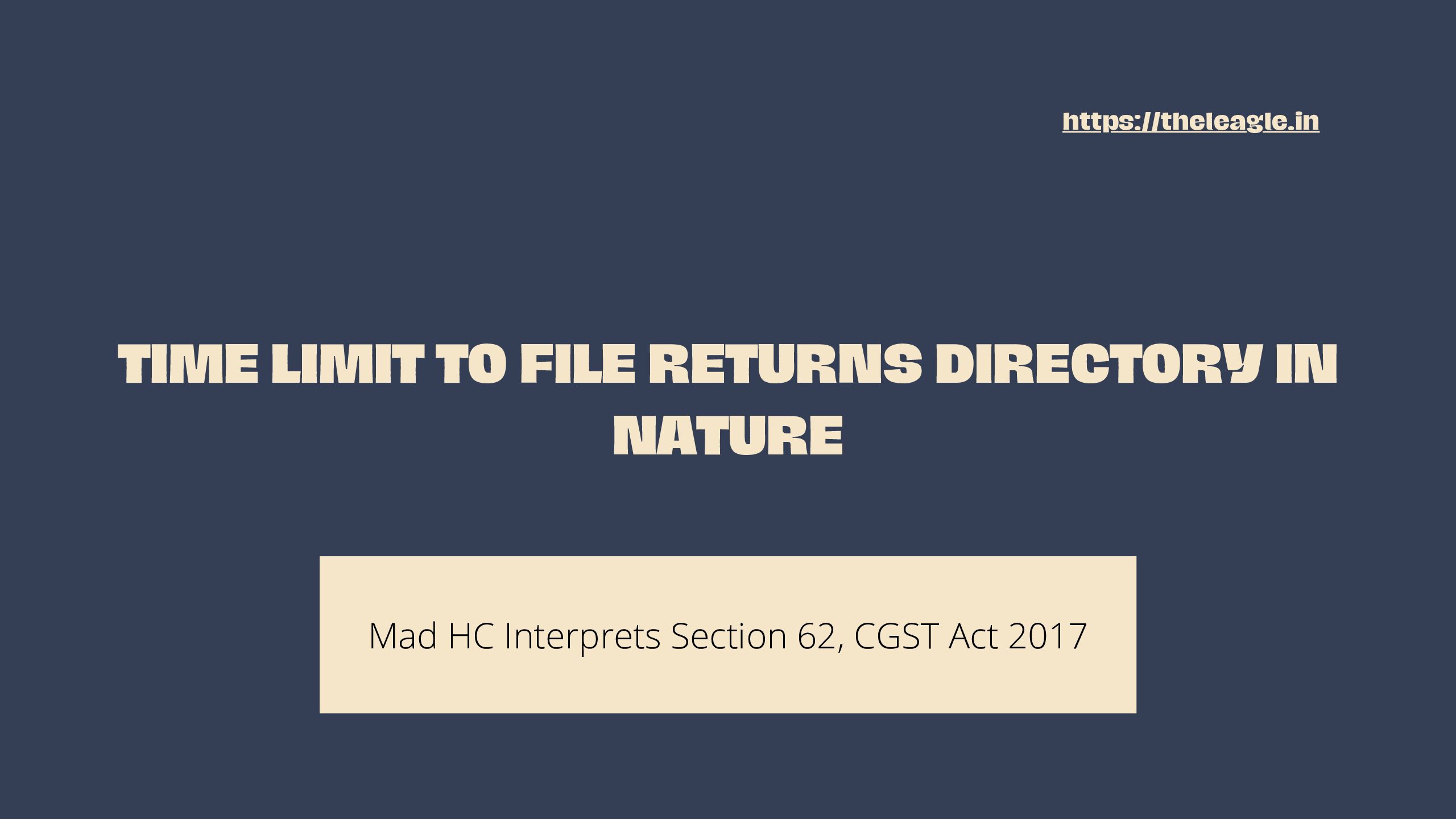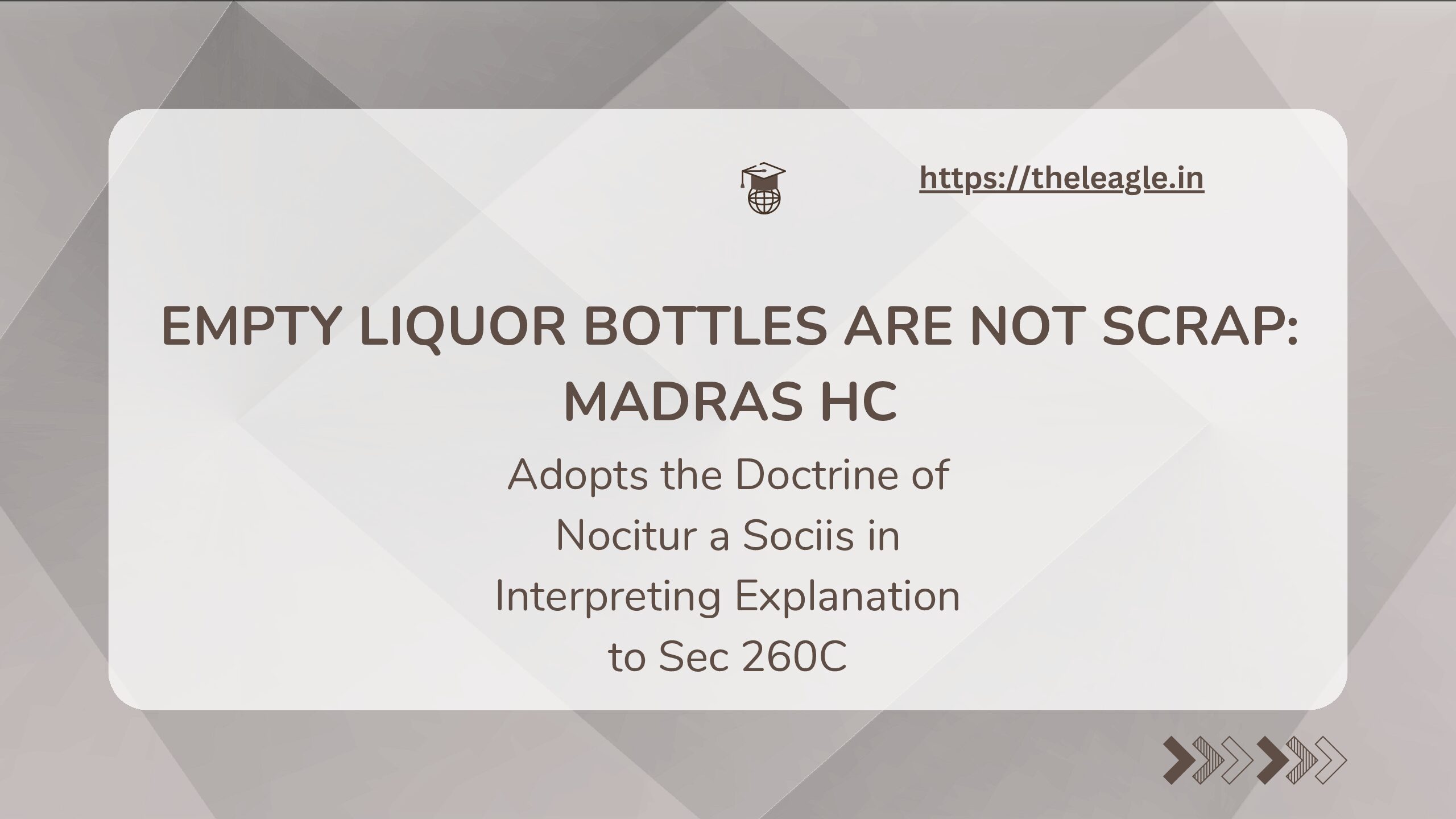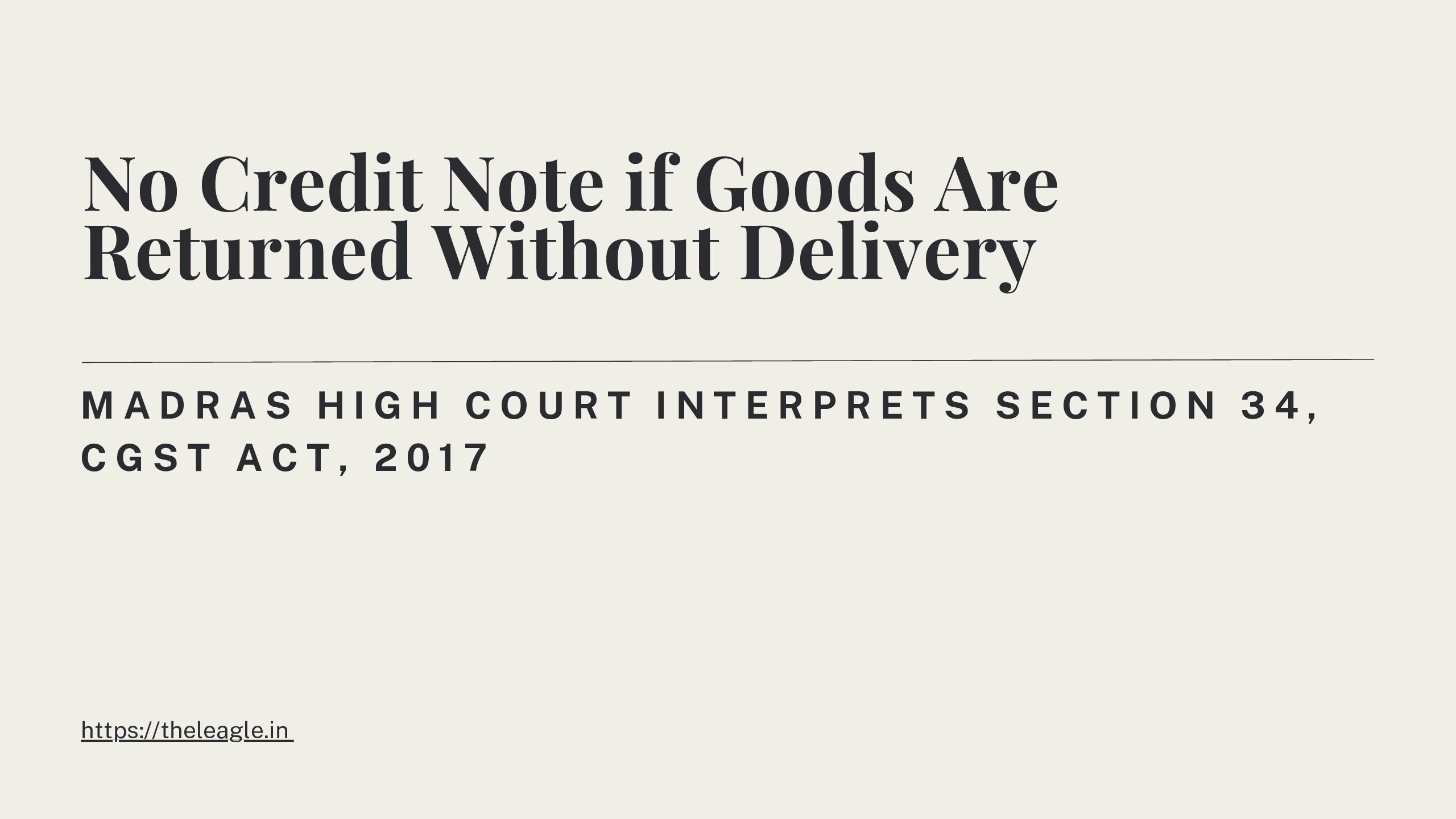In a recent decision[1], the Madras High Court had to decide if an assessee loses the right to file tax returns after expiry of 30 days under Section 62(2), CGST Act, 2017. Section 62(2) provides an assessee 30 days to file returns after the proper officer passes a ‘best judgment’ assessment order. The High Court held that the assessee does not lose its right to file returns, but its interpretation of the provision is not founded on cogent reasoning.
Facts
In the impugned case, the asssessee failed to file its tax returns for the months of December 2022, January 2023 and February 2023. Thus, in exercise of the powers under Section 62(1), the proper officer passed best judgment assessment orders on 28.03.2023 for the month of December 2022 and on 30.04.2023 for the months of January 2023 and February 2023. Under Section 62(2), the assessee can file a valid return within 30 days of the service of best judgment assessment order passed by a proper officer under Section 62(1). And if the return is filed, the best judgment assessment order is deemed to have been withdrawn but the assessee’s liability for payment of fine and penalty continues.
In the impugned case, the assessee did not file its return within 30 days of the passing of the best judgment assessment order and pleaded that the delay be condoned on account of financial difficulties. The Madras High Court framed the issue as: whether the assessee loses the right to file returns after expiry of 30 days or is right retained by providing sufficient reasons for non-filing of returns. (para 13)
Decision
The Madras High Court examined the relevant provision, i.e., Section 62, CGST Act, 2017 and stated that under Section 62(1) the proper officer has been granted a period of 5 years for completing the best judgment assessment. The 5 years are calculated from the due date of filing of annual return of the relevant financial year. Thus, the High Court deduced that in the impugned case, the proper officer could finalise the best judgment assessment order until 31.12.2029. And thereafter elaborated:
In such case, if the best judgement assessment order is passed by the respondent on 31.12.2029, which is permissible under Section 74 of the GST Act, the petitioner can file his returns within a period of 30 days therefrom i.e., on or before 30.01.2030. Hence, the time limit is available up to 30.01.2030 for the petitioner to file their returns. (para 14)
The above paragraph is a peculiar reading of Section 62. Under Section 62(1), the proper officer has an outer time limit of 5 years to finalise the best judgment assessment order. This does not automatically extend the right of an assessee to file their tax returns to 5 years and 30 days. The assessee, under Section 62(2), must file a valid tax return within 30 days of passing of the best judgment assessment. Only because in the impugned case the proper officer finalized the best judgment assessment much before expiry of 5 years does not mean that the right of assessee extends to 5 years and 30 days. If the right of an assessee is interpreted to survive for 5 years and 30 days in all cases, then prompt passing of best judgment assessment orders would negate the 30 day outer limit as assessee can file valid returns anytime within 5 years and 30 days. The intent of the provision seems to be to allot the proper officer a window of 5 years to pass an order and the assessee 30 days once the order has been passed.
The other issue, about condonation of delay was where the Madras High Court’s observations were on sounder footing. The High Court observed that if there is a sufficient reason for not filing returns within 30 days then the delay can be condoned. But, this does not lead to the High Court’s conclusion that ‘the limitation of 30 days period prescribed under Section 62(2) of the Act appears to be directory in nature’. (para 16) Here again, interpreting the 30-day time period allotted to the assessee as directory in nature is an opinion manufactured by the High Court without any cogent reasoning or a detailed analysis of the intent of the provision.
Conclusion
The Madras High Court’s conclusion that if there is delay on assessee’s part, i.e., beyond 30 days, then the delay can be condoned if sufficient reasons are presented is appreciable. However, the interpretation that the period of 30 days is only directory in nature and right of the assesse to file valid returns extends beyond 5 years lacks teeth. The High Court was remiss in not noticing that the period of 5 years was for the proper officer and not the assessee. The latter only has 30 days which commence from the service of the assessment order.
[1] Comfort Shoes Components v Assistant Commissioner, Ambur, Vellore TS-694-HCMAD-2023-GST.


